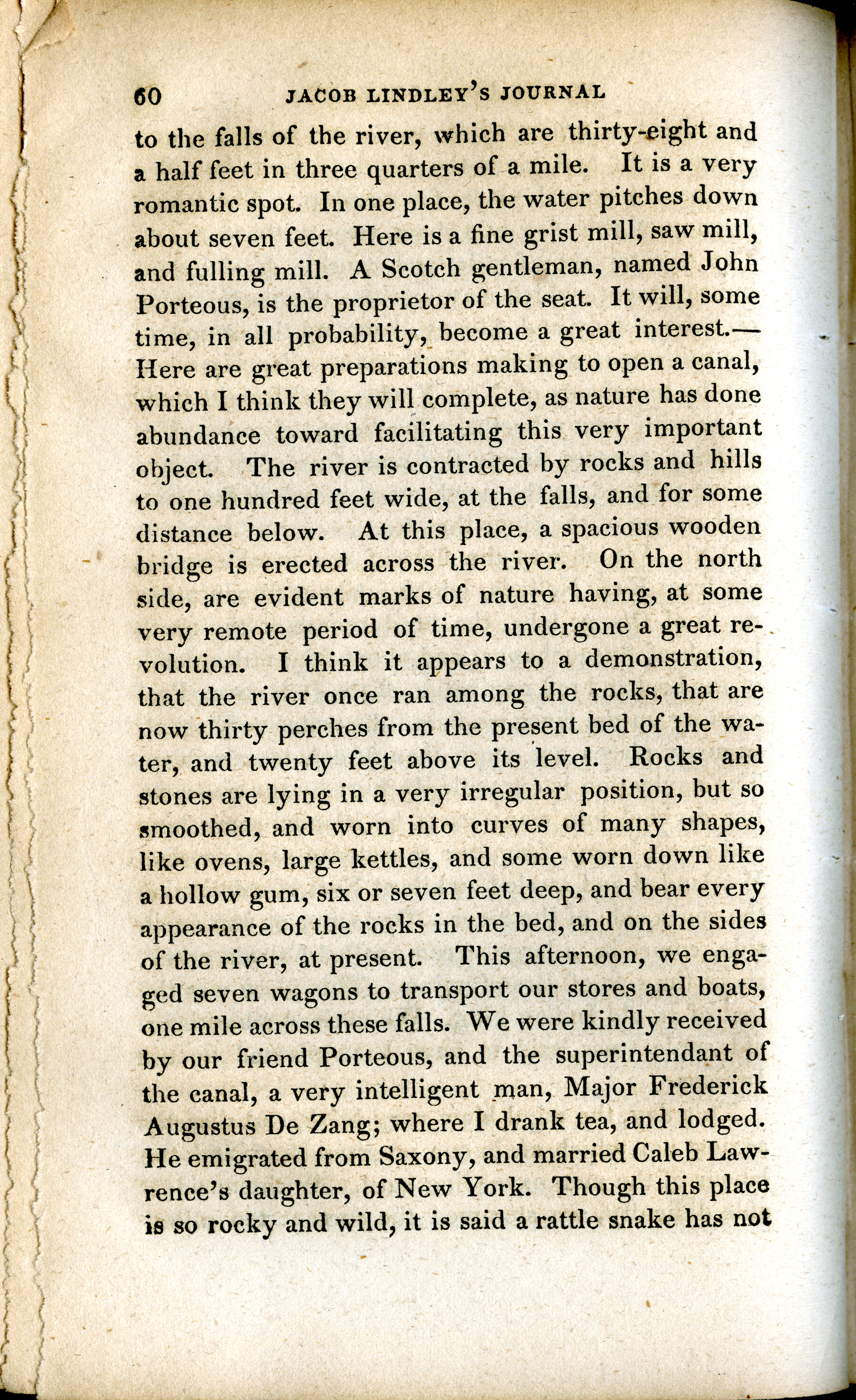to the falls of the river, which are
thirty-eight and
a half feet in three quarters of a mile. It is a very
romantic spot. In one place, the water pitches down
about seven feet. Here
is a fine grist mill, saw mill,
and fulling mill. A Scotch gentleman, named
John
Porteous, is the proprietor of
the seat. It will, some
time, in all probability, become a great interest.
—
Here are great preparations making to open a canal,
which I think
they will complete, as nature has done
abundance toward facilitating this
very important
object. The river is contracted by rocks and hills
to
one hundred feet wide, at the falls, and for some
distance below. At this
place, a spacious wooden
bridge is erected across the river. On the
north
side, are evident marks of nature having, at some
very remote
period of time, undergone a great re-
volution. I think it appears to a
demonstration,
that the river once ran among the rocks, that are
now
thirty perches from the present bed of the wa-
ter, and twenty feet above
its level. Rocks and
stones are lying in a very irregular position, but
so
smoothed, and worn into curves of many shapes,
like ovens, large
kettles, and some worn down like
a hollow gum, six or seven feet deep, and
bear every
appearance of the rocks in the bed, and on the sides
of the
river, at present. This afternoon, we enga-
ged seven wagons to transport
our stores and boats,
one mile across these falls. We were kindly
received
by our friend Porteous, and the
superintendent of
the canal, a very intelligent man, Major Frederick
Augustus De Zang; where I drank tea,
and lodged.
He emigrated from Saxony, and married Caleb Law-
rence’s daughter, of New York. Though this
place
is so rocky and wild, it is said a rattlesnake has not

